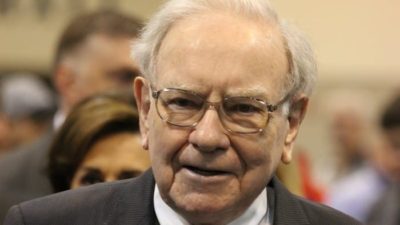About time, CommBank!
I mean, it's only been a couple of years – during which time Afterpay Ltd (ASX: APT)'s market cap has ballooned from $3 billion to $30 billion, as its trailing 12 months sales grew sixfold.
And now, belatedly, Australia's largest bank seems to be fighting back.
Oh, the Commonwealth Bank of Australia (ASX: CBA) had made an investment in another buy now, pay later (BNPL) company, Klarna, so it wasn't sitting completely still… but it wasn't exactly taking the disruptor head-on.
Until now.
Finally, though, CBA has done what it should have done 12 or 18 months ago.
Cliches are cliches for a reason – they tend to be true – and CommBank has finally bowed to the truism 'if you can't beat 'em, join 'em', and has announced plans to launch its own BNPL offering.
I shouldn't be too harsh on CBA, though. At least it's doing something.
ANZ and NAB, by contrast, seem happy to let this play out from the sidelines, at least from what we know publicly.
And Westpac has gone the 'frenemy''(friend-enemy) route, cosying up to Afterpay, allowing it to use Westpac's infrastructure to offer savings products in what both likely hope is only the beginning of more services to come.
CBA's strategy, though, is – I think – the right one.
To be sure, there's no guarantee that it'll work. The corporate landscape is littered with lumbering giants who tried, but were unable, to find success in other areas (hello Woolies' failed Masters hardware business, and Bunnings' own foray into the UK, plus almost every Australian bank's attempts at international expansion!).
It may be that CBA spends a small fortune, only to withdraw from the race, cowed and beaten, as Afterpay turns its head for home…
But the bank owes it to its shareholders to have a go.
The incumbents, having waited to see if BNPL would become 'a thing', are now faced with the reality that, well, it is.
BNPL is, it seems obvious, here to stay.
And it is hoovering up customers at a rate of knots, presumably hurting the banks' credit card pipeline and potentially taking away its savings account customers, too.
It's also why CBA's strategy just makes perfect sense.
Yes, giving customers longer to pay is going to (moderately) impact its margins, and that's unwelcome… but it's a helluva lot better than losing those customers altogether.
But frankly, if you're already processing those transactions anyway, and the cost of money is essentially zero, what's the true cost of simply 'parking' three-quarters of the price of a pair of jeans for a few weeks?
Especially compared to the risk of losing that customer – and the lifetime value of their potential credit card and mortgage interest, and potential brokerage business. Plus, our banks rely heavily on customer deposits to fund their mortgage books – they don't want to give away those savings balances too quickly!
(And it is planning to charge retailers for the service. I think that's a mistake, but more on that, later…)
In other words, CBA's response, while too late, is a no-brainer, reminding me of one of the cardinal rules of business:
"Don't let anyone get between you and your customer".
That doesn't mean CBA will win.
They've given Afterpay… and Zip Co Ltd (ASX: Z1P), and Sezzle Inc (ASX: SZL), and SplitIt Ltd (ASX: SPT), and Humm Group Ltd (ASX: Hum), and… a helluva head start.
Afterpay has become a verb, like Google, and a de facto noun to describe a whole category, like Esky and Kleenex.
So CBA and its ilk have a lot of work to do, and the chances of success are far from clear.
And while it's undercutting Afterpay by offering the service to retailers at a much lower fee, I reckon they're not pushing anywhere near hard enough.
If I was the boss of a big bank, I'd be taking the fight to Afterpay by making it free for both customers and retailers.
I'd let customers simply turn their whole savings account into an Afterpay-style service for purchases under, say, $250.
Then, who needs Afterpay at all?
No app. No retailer charges. No extra infrastructure.
Just package up each purchase, and allocate it to the customers' transaction accounts in four instalments.
Easy, no? And it'd take the BNPL players' knees out from under them.
Before moving on, though, I do want to give the Commonwealth Bank a huge rap for committing to conduct proper credit checks before offering the service – something the BNPL disrupters don't do. I think that's a far more responsible way to offer credit and to avoid putting customers under undue financial stress.
But that may not be the main game.
See, while I've just been talking about CBA, it could be another -BA that gives Afterpay shareholders something to think about.
The major broadsheets are this morning reporting that the Reserve Bank of Australia (RBA) is now getting serious about potentially forcing Afterpay to scrap one of its key advantages.
It's free for us to use, making it a no-brainer for many people, but retailers have had to swallow a ~4% charge for the privilege.
Thus far, Afterpay has prevented its retail partners from passing on that cost to their customers.
But that could change, with the RBA apparently considering striking down that restriction.
And, based on the work the RBA has done, 3 in 5 customers would either not make the purchase, or change payment methods, if they were forced to cough up to use Afterpay or its peers.
Of course, Afterpay, in particular, is now a global force to be reckoned with. Any impact on its Australian business would be far from fatal.
Whether the same would be true for its smaller competitors is far from clear.
One thing seems clear, though: there are many more chapters to be written before this buy now, pay later story has been fully told.
At this point, it's Afterpay's race to lose, and the company's track record of growth and innovation has been very impressive.
Time will tell if its headstart is enough, or whether the big banks can shake off the inertia that plagues large, old companies, and give it a run for its money.









